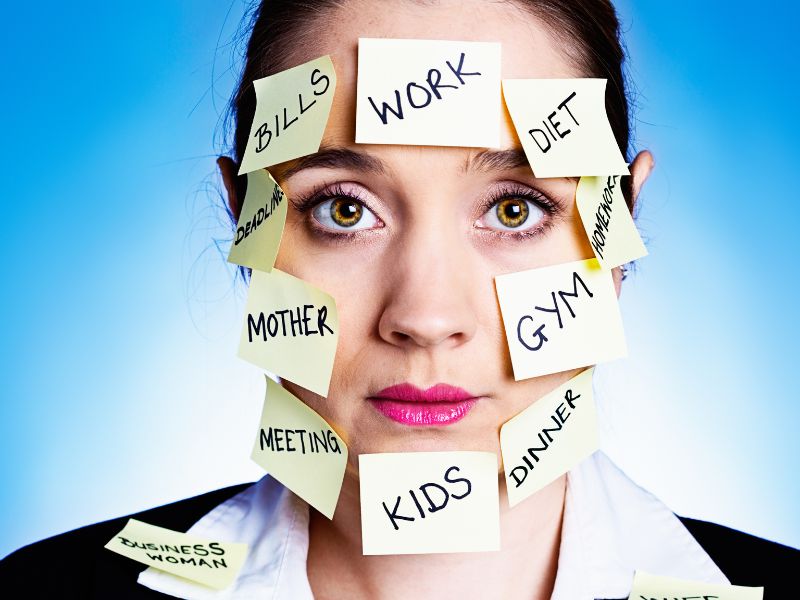
Have you ever wondered if your lack of focus was linked to something other than simply being tired? Does brain fog negatively impact your day-to-day living? ADHD is a condition becoming more and more common among females, especially older women.
According to a recent article in the Guardian, ADHD services are ‘swamped’ as more and more women are seeking a diagnosis. If you are concerned, read on to discover more.
What Is ADHD?
Attention-deficit/hyperactivity disorder (ADHD) is a neurodevelopmental disorder that affects both children and adults. While it is more commonly diagnosed in children, adults can also experience symptoms of ADHD. In fact, studies suggest that up to 4% of adults in the United States have ADHD.
One group that is often overlooked in the conversation about ADHD is older females. While ADHD is more commonly diagnosed in males, females are just as likely to have the disorder. However, their symptoms may differ from those typically seen in males.
Research has shown that there is a significant imbalance in the number of males to females diagnosed with ADHD, which is believed to be partly caused by a lack of recognition and bias in the referral process for females. As females with ADHD tend to have a different profile of symptoms, comorbid conditions, and functional impairments compared to males, it is crucial to improve awareness, recognition, and referral practices in order to provide better care and improve the well-being of female patients with ADHD.
Symptoms of ADHD in Older Women

One of the key symptoms of ADHD is difficulty with attention and focus. Adults with ADHD may have trouble staying on task, following through on projects, and completing tasks. They may also have difficulty organizing and planning, which can lead to problems at work or school.
Hyperactivity and impulsivity are also common symptoms of ADHD. However, in older females, these symptoms may manifest differently than in males. For example, an older female with ADHD may have a hard time sitting still or may fidget excessively, rather than displaying overt hyperactivity. They may also have trouble controlling their impulses, leading to impulsive behaviors such as interrupting others or acting without thinking.
Anxiety and depression are also common among adults with ADHD. They may struggle with low self-esteem, difficulty with relationships, and problems at work or school.
It’s important to note that these symptoms can also be caused by other conditions, so a proper diagnosis should be made by a healthcare professional.
ADHD Treatment for Older Females
There are several treatment options available for Attention-deficit/hyperactivity disorder (ADHD), which can help reduce symptoms and improve daily functioning.
Medication: Stimulant medications such as Ritalin and Adderall, as well as non-stimulant medications like Strattera, can be effective in treating symptoms of ADHD. These medications work by increasing the levels of certain chemicals in the brain, such as dopamine and norepinephrine, that are thought to be involved in attention and focus.
Behavioral therapy: Behavioral therapy can help individuals with ADHD learn new skills to manage their symptoms. This can include techniques such as time management, organization, and problem-solving. Behavioral therapy may also involve parent training, which can help parents learn strategies to support their child with ADHD at home.
Cognitive-behavioral therapy (CBT): This type of therapy helps individuals with ADHD change negative thought patterns and behaviors that are contributing to their symptoms.
Occupational therapy: Occupational therapy can help individuals with ADHD develop practical skills to improve their daily functioning, such as time management, organization, and problem-solving.
Coaching: ADHD coaching can help adults with ADHD develop strategies to manage their symptoms in the workplace, school, or other settings.
It’s important to note that treatment plans will vary depending on the individual’s symptoms and needs. A combination of medication and therapy is often the most effective approach. It’s also important to work with a healthcare professional to find the right treatment plan for you.
ADHD In Older Females: The Take Home
ADHD in women is fortunately an issue that is being given some serious support in terms of better understanding and treatment plans available. However, there is still headway to make especially in the older population where it is often misdiagnosed or associated with menopausal brain fog.
If you suspect that you or someone you know may have ADHD, it’s important to seek help from a healthcare professional and discuss the treatment options available. ADHD is a manageable condition that with the right support and guidance doesn’t have to negatively affect your quality of life.
DISCLAIMER: Flawsome and Fifty website does not provide medical advice
The information, including but not limited to, text, graphics, images and other content contained on this website is for informational purposes only. No material on this site is intended to be a substitute for professional medical advice, diagnosis, or treatment. Always seek the advice of your doctor with any questions you may have regarding a medical condition or treatment before undertaking a new healthcare routine or product, and never disregard professional medical advice or delay in seeking it because of something you have read on this website.
